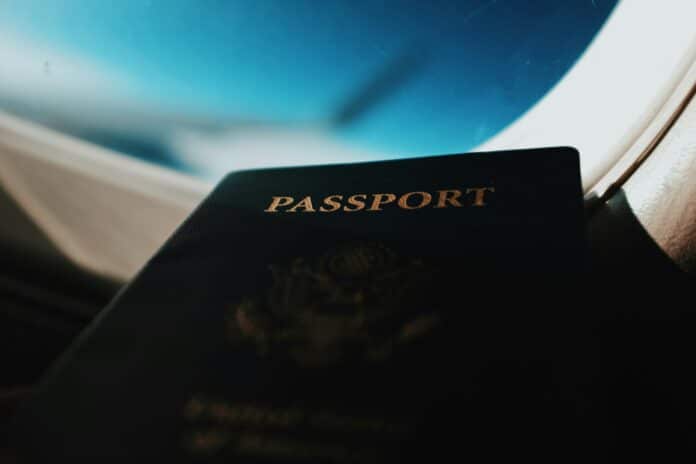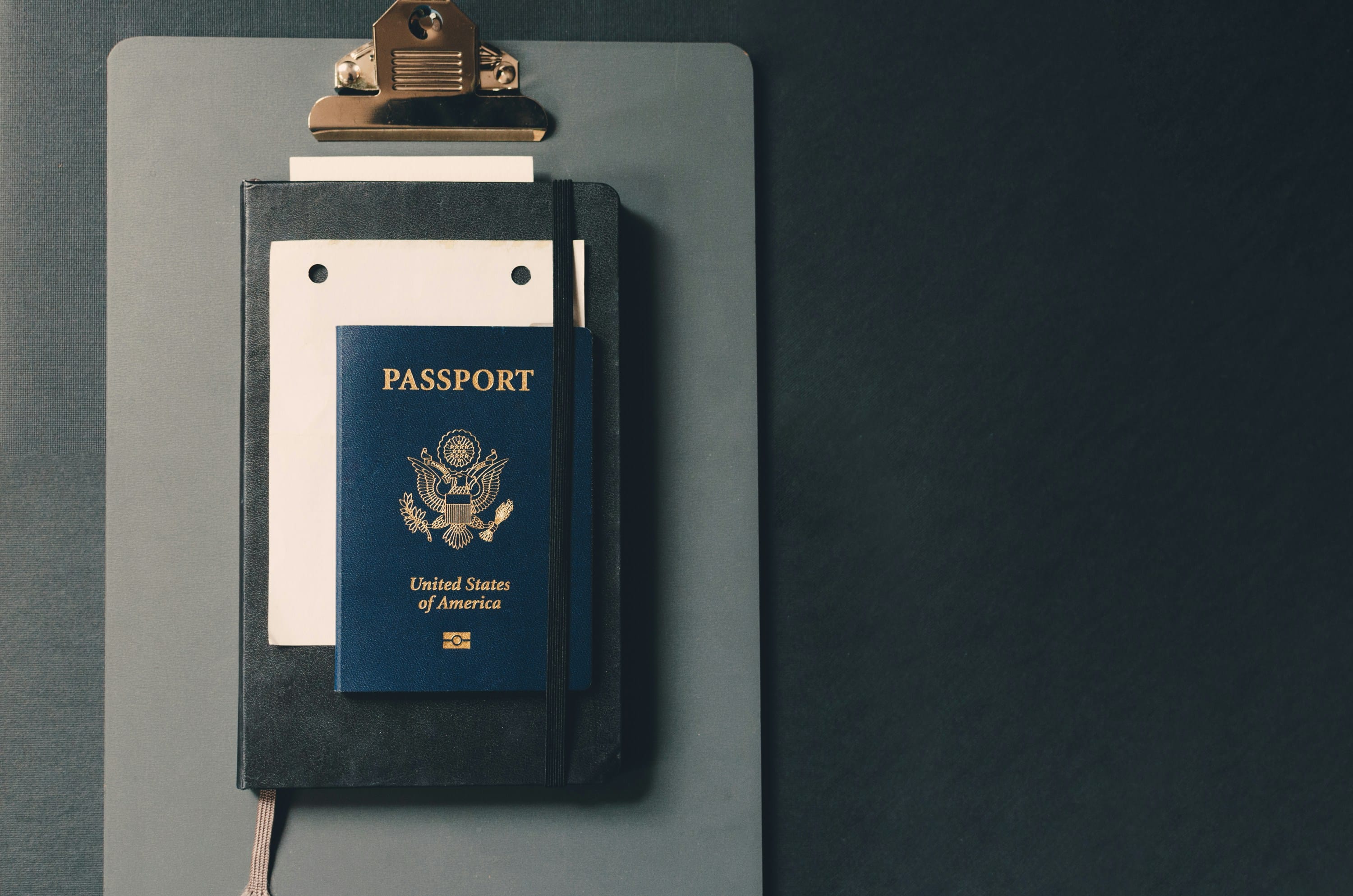Do you need a passport to travel to Costa Rica? Understanding the passport requirements for visiting Costa Rica is essential for ensuring a smooth and hassle-free travel experience.
Know more about the intricacies of passport regulations, guiding you through what you need to know before embarking on your Costa Rican adventure. Whether you’re a seasoned or first-time traveler, let’s navigate the passport requirements together, unlocking the gateway to your unforgettable journey in Costa Rica.
If you are planning a Costa Rica vacation all-inclusive, know the essential passport requirements for traveling to this amazing country. From understanding entry regulations to ensuring smooth immigration processes, learn everything you need to know before embarking on your Costa Rican tour.
FREE! Travel eBook to discover Costa Rica!
Grab the eBook with the exhaustive brochure for your Costa Rica Vacation All-Inclusive.
*By clicking send, you agree to receive information about products, services, promotions, or recommendations via email.
The Importance of Passports for International Travel
Lo que vas a ver en este artículo
- 1 The Importance of Passports for International Travel
- 2 Can I travel to Costa Rica Without a Passport?
- 3 How Long does my Passport need to be Valid to Travel to Costa Rica?
- 4 Passport Requirements for Traveling to Costa Rica
- 5 Passport Requirements for Different Types of Travelers
- 6 Alternative Travel Documents Besides Passports
- 7 Do you Need a Passport to Travel to Costa Rica?
Passports are indispensable tools for international travel, serving as the ultimate form of identification and entry into foreign countries. When considering travel to destinations like Costa Rica.
Do you need a passport to travel to Costa Rica? The unequivocal answer is yes. A passport is not just a document; it’s a gateway to exploration, adventure, and cross-cultural experiences.
A passport establishes the bearer’s identity and nationality, providing crucial information such as name, date of birth, photograph, and nationality. This information is essential for immigration officials to verify the traveler’s identity and eligibility to enter their country.
Without a passport, travelers may face significant hurdles and delays at border control checkpoints, potentially even being denied entry altogether.
Moreover, passports serve as a means of ensuring security and safety for both travelers and host countries. By requiring passports for entry, countries can better screen individuals, ensuring that only those with legitimate reasons for travel are allowed across their borders.
This helps prevent illegal immigration, human trafficking, and other criminal activities, thus safeguarding the integrity of international travel.
In the context of traveling to Costa Rica specifically, possessing a valid passport is not only a requirement but also a practical necessity. As a popular tourist destination renowned for its lush rainforests, stunning beaches, and diverse wildlife, Costa Rica attracts visitors from around the globe.
A passport enables travelers to navigate through customs and immigration procedures smoothly, fully immersing themselves in the country’s natural beauty and vibrant culture without unnecessary hassles.
Can I travel to Costa Rica Without a Passport?
The question of whether one can travel to Costa Rica without a passport often arises among prospective travelers. The simple and definitive answer is: no, you cannot travel to Costa Rica without a passport.
A passport is an absolute requirement for citizens of most countries to enter Costa Rica. It is the primary form of identification and proof of nationality, making it indispensable for international travel.
Like many countries, Costa Rica adheres to strict entry requirements to maintain security and regulate immigration. Without a valid passport, travelers risk being denied entry at immigration checkpoints, regardless of their mode of transportation or purpose of visit.
Whether arriving by air, land, or sea, presenting a passport is non-negotiable for anyone wishing to enter Costa Rica legally.
How Long does my Passport need to be Valid to Travel to Costa Rica?
To travel to Costa Rica, your Passport must be valid for at least six months beyond your planned departure date from the country. If you plan to leave Costa Rica on a certain date, your Passport should expire at least six months after that date.
It’s crucial to ensure your passport meets this validity requirement to avoid any complications or denial of entry at immigration checkpoints in Costa Rica. Therefore, before traveling, always check the expiration date of your Passport and renew it if necessary to comply with Costa Rican entry regulations.
Passport Requirements for Traveling to Costa Rica
Understanding the passport requirements is essential to ensure a smooth and hassle-free journey when planning a trip to Costa Rica. A passport is not just a travel document; it’s your key to unlocking the wonders of this beautiful Central American nation.
A valid passport is required to enter Costa Rica for citizens of most countries. This applies to travelers arriving by air, land, or sea. Additionally, your Passport must be valid for at least six months beyond your planned departure date from Costa Rica. Failure to meet this requirement could result in denied entry or complications during your trip.
Furthermore, Costa Rica does not require visas for citizens of many countries, including the United States, Canada, the European Union, and most Latin American nations, for stays of up to 180 days.
However, checking the specific visa requirements based on your nationality is crucial before traveling to Costa Rica. Some countries may have different visa regulations or entry requirements.
When crossing borders into Costa Rica, travelers must present their Passport to immigration officials for inspection. Whether arriving at Juan Santamaría International Airport, Daniel Oduber Quirós International Airport, or crossing a land border, having a valid passport is non-negotiable.
It serves as proof of identity and nationality, allowing immigration authorities to process your entry into the country efficiently.
If you want more information about Costa Rica, we invite you to read the next article: How to Find the Best Travel Deals to Costa Rica?
Passport Requirements for Different Types of Travelers
Passport requirements for traveling to Costa Rica vary depending on the type of traveler. Here’s a breakdown:
- Tourists: Tourists visiting Costa Rica for leisure or recreational purposes must possess a valid passport. The Passport must be valid for at least six months beyond the planned departure date from Costa Rica. Additionally, tourists from many countries can stay in Costa Rica for up to 180 days without a visa.
- Business Travelers: Business travelers heading to Costa Rica for meetings, conferences, or other professional purposes also need a valid passport. Like tourists, business travelers must ensure that their Passport has at least six months’ validity beyond their intended departure date. Depending on their nationality, they may need to obtain a visa or other travel authorization for business purposes.
- Students: Students traveling to Costa Rica for educational purposes, such as attending a study program or participating in an exchange program, typically require a valid passport. Additionally, students may need to obtain a visa or other documentation depending on the length and nature of their stay.
- Volunteers: Individuals traveling to Costa Rica for volunteer work or humanitarian missions must possess a valid passport. Depending on the nature and duration of their volunteer activities, they may need to obtain additional visas or permits. Volunteers need to research and understand the specific requirements applicable to their situation.
- Residents and Expatriates: Individuals residing in Costa Rica or planning to relocate there as expatriates must have a valid passport for entry and residency purposes. Depending on their nationality and intended length of stay, expatriates may need to follow specific procedures to obtain residency permits or visas.
- Diplomatic and Official Travelers: Diplomatic and official travelers representing their governments or international organizations while visiting Costa Rica must possess diplomatic or official passports, respectively. These travelers may be subject to different entry requirements and visa exemptions based on diplomatic protocols and international agreements.
- Transit Passengers: Passengers transiting through Costa Rica on their way to another destination typically require a valid passport. However, some travelers may be eligible for transit visas or exemptions depending on the duration and nature of their layover.
Regardless of the type of traveler, it’s essential to review and comply with Costa Rica’s passport and visa requirements well before the planned travel date to avoid complications or delays at immigration checkpoints.
Additionally, travelers should ensure that their passports have sufficient validity and meet all other entry requirements specified by Costa Rican authorities.
If you want to know more information, visit the official Costa Rica tourism website.
Alternative Travel Documents Besides Passports
While passports are the primary travel documents required for international travel, there are alternative documents that may be accepted in certain circumstances.
One alternative to a traditional passport is a passport card. Passport cards are wallet-sized cards issued by some countries, particularly the United States, as a more convenient and cost-effective option for travel to certain destinations, including Costa Rica.
However, verifying whether Costa Rica accepts passport cards for entry is essential, as not all countries recognize them as valid travel documents.
Another alternative document that may be required for travel to Costa Rica is a visa. While citizens of many countries enjoy visa exemptions or visa-on-arrival privileges for short stays in Costa Rica, travelers from certain countries may need to obtain a visa before traveling.
Visas typically come in the form of stamps or stickers affixed to a passport, which grants permission for entry and stays within a country for a specified period. Travelers must check the visa requirements for Costa Rica based on their nationality and intended length of stay.
Additionally, some travelers may hold special documents, such as diplomatic passports or official travel documents, which are issued to government officials or individuals traveling on official business.
While these documents may confer certain privileges or exemptions, they still need to be accompanied by appropriate entry permits or visas if required by Costa Rican immigration regulations.
It’s important to note that alternative travel documents, such as passport cards or visas, should always be obtained and verified well before travel to ensure compliance with Costa Rican entry requirements.
Failure to present the necessary documents could result in denied entry or other complications at immigration checkpoints. Therefore, while there are alternatives to traditional passports for international travel, travelers should carefully consider the specific requirements of their destination, including Costa Rica, before embarking on their journey.
Do you Need a Passport to Travel to Costa Rica?
Whether you need a passport to travel to Costa Rica is a crucial consideration for anyone planning a visit to this stunning Central American destination. Throughout this article, we’ve explored the importance of passports as the primary travel document for international travel and the strict entry requirements enforced by Costa Rica.
Understanding and adhering to passport requirements is essential for a smooth and seamless travel experience to Costa Rica. A valid passport establishes the traveler’s identity and nationality and serves as a gateway to exploring the country’s natural wonders, vibrant culture, and diverse attractions.
Whether you’re a tourist seeking adventure, a business traveler attending meetings, or a student embarking on an educational journey, possessing a valid passport is non-negotiable for entry into Costa Rica.
While alternative travel documents such as passport cards or visas may be accepted in certain circumstances, it’s crucial to verify their validity and compliance with Costa Rican immigration regulations before traveling.
Failure to present the necessary documents could result in denied entry or other complications at immigration checkpoints. Therefore, travelers should always ensure that their passports are up to date and meet all requirements specified by Costa Rican authorities before embarking on their journey.
If you want more information about Costa Rica, we invite you to read the next article: Affordable Adventures: Cheapest Time to Travel to Costa Rica.



















